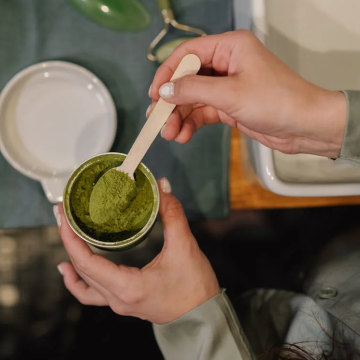Your toddler is a sponge for information, and while it might seem that they are also an indestructible force of nature and run off unlimited battery power, they are learning about the world around them, who they are, what they can do, and where theory slots in, fuels it.
As parents, the journey of understanding your toddler’s world, whether it’s holding their hand or giving them space, is a joyous discovery. It’s not just enlightening, but also a way to deepen your bond and appreciate the beauty of their unique perspective.
If you’re transitioning through the baby phase into toddlerhood or you need more help navigating toddler life, it’s not for the faint-hearted; these tips on supporting your toddler can come in really handy for your development and theirs, too.
No Pressure
Sure, toddlers, much like babies, have developmental milestones to meet. However, your toddler isn’t something that can or should be molded into the perfect cookie-cutter presentation. There is no one right or wrong way for your child to reach their goals, and timelines are not set in stone. Think of toddler milestones as guidelines, not targets that need to be achieved as if they were a dissertation deadline. An advisory rather than an automatic failure if not hit.
Realizing that your toddler doesn’t need to meet standards they don’t understand can be a liberating moment for you as a parent. It can bring a sense of relief and confidence, allowing you to enjoy the journey of parenting more.
Explore Vocabulary
Exploring vocabulary with your toddler can be a fun and engaging experience. Whether it’s through simple conversations, word games, or singing, you’re not just teaching them new words; you’re also creating enjoyable moments that strengthen your bond.
Other great ways to explore vocabulary with your child include singing with them and watching movies or shows. You can play word games and sing songs—any songs will do, especially those aimed at encouraging toddlers to learn a new world, the alphabet or numbers, for example. For instance, you can play ‘I Spy’ to teach them about objects or sing ‘Twinkle, Twinkle, Little Star’ to introduce them to new words. You can also point out objects in the environment and say their names, or ask your toddler to describe what they see, encouraging them to use new words.
Reading to and with your child and allowing them to “read” out loud can also help you to help them develop their vocabulary skills as well as start them off on the right path when it comes to learning words.Sight Words For Kindergarten: A List & Guide For Parents can be useful here to help your child build their knowledge of sight words easily. But even if you don’t want to focus so much on the learning aspect, all of these activities are amazing ways to support your child’s development, not only for vocabulary but for building confidence, exploring their imagination, and so much more.
Free Play
Not everything needs to have a reason or to be structured. Sure, helping your child with activities that are beneficial for other development is good. But remember, free play is a crucial tool for your toddler’s cognitive development. It gives them a chance to explore their creativity and what they can do and understand their own impact on the world around them.
It’s a vital tool for your toddler’s development. It gives them a chance to explore their creativity and what they can do and understand their own impact on the world around them.
If you, as their parents, do everything for them and don’t give them the chance to make their own decisions, take charge, and be in control of anything, you’re not actually helping them but hindering their development.
As they grow, the independence and decision-making skills they develop through free play will serve them well in many areas of life. But even now, it’s building their confidence, facilitating communication, and bringing them a great sense of pride and enjoyment through play.
Prioritise Health and Wellbeing
Your toddler will have no concept of this. They won’t care that they get cranky if they miss a nap or don’t sleep long enough, nor will they care that their veggies make them strong and healthy.
While not all toddlers are fussy about food choices, a great many are. Even the most balanced and healthy baby can turn into a toddler who only wants to consume a diet of chicken nuggets and ketchup. Preempting this by finding imaginative ways to introduce healthier food choices to your toddler can be helpful for supporting their inquisitive years and is a great way to get goodness into them.
There are many tricks employed by parents worldwide that help them encourage their toddlers to eat a more balanced diet. Blending veggies into sauces, creating fun patterns and designs, having the theme help to prepare, and more are all tried and tested methods you can use. For example, you can make a ‘rainbow plate’ with different colored fruits and vegetables, or let your toddler help you prepare a meal, which can make them more interested in eating it. You can also make healthy snacks readily available and limit the availability of unhealthy options.
Along with a balanced diet, you can also emphasize the importance of exercise by ensuring your toddler moves around as much as possible during the day. This, in turn, can facilitate another common struggle with toddlers: sleeping.
Toddlers aged between 12 and 24 months should get 11 – 14 hours of sleep per 24 hours. This might seem a lot if your toddler is nap aversive, but not only can a lack of sleep impact their mood and behavior, but it can also hinder their development.
Lastly, for this section, as a parent, it’s important you focus on your child’s emotions, too. Don’t dismiss them as being stubborn or difficult. Try to see things from their point of view.
It’s a bit overwhelming, and they don’t have the experience or tools to deal with everything like adults do. They’re going to react off the cuff a lot more easily and emotionally because it’s really one of the two only ways they know how to do it. Teach them how to process, not stifle these feelings, and direct them to better ways to express themselves. While it won’t eliminate a good old toddler tantrum, it can help make it easier for everyone involved.
Take Cues
Taking cues from your toddler means that you follow their lead when it comes to what they want and need. The more you can understand the theme and their needs, the easier it will be for them to learn and process the world around them. Whether it’s following their lead in the play, nap times, or how they want to learn and engage with the world, you need to ensure that you work with them, not against them, to help them develop and flourish in a way that works for them and what they need.
Not all children need the same things, and your toddler might need something different than, say, your best friend’s child when it comes to supporting their needs. Some toddlers are more independent; others want more input and support from their parents. Understanding what your child needs is crucial, as it will enable you to provide the right level of support in a way that is most beneficial for them. So, step back, let your toddler take the lead, and guide how they learn, play, and interact with the world.
Relax
This post started focusing on the parent, and it will end on it, too. As a parent, all of your stresses and worries can and will be transferred to your toddler, whether it’s about them or not. Use the time with your toddler to focus on enjoyment and leave the adult stuff at the door. The more relaxed and happy you are when you’re with them, the easier it will be to support their development and deal with any hiccups in the day. Remember they’re not being intentionally difficult, and communicating can help ease tensions between both sides. They are not adults, so they don’t need to be subjected to adult emotions and problems that can rub off on them, too.
Parenting isn’t easy 24/7. And the toddler stage can be somewhat of a wrecking ball in your life as your baby transitions through childhood. However, being able to support this phase as a parent can give your child the building blocks they need to be well-rounded children and adults as they move through life and begin to forge their own path in this world. While it might not seem important now, how you support your toddler can have a massive impact on how they turn out many years down the line. So take a deep breath, you got this and if you don’t, you can bet your toddler can guide you and help you so you can figure it out together.





Leave a Reply